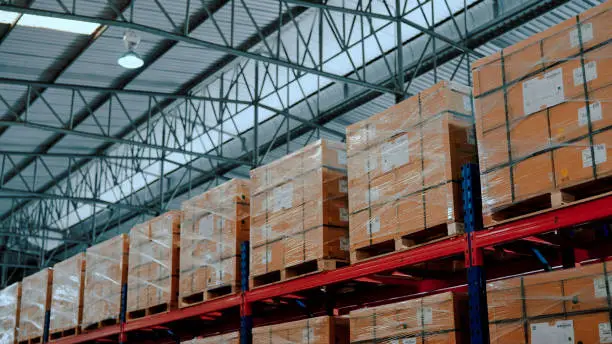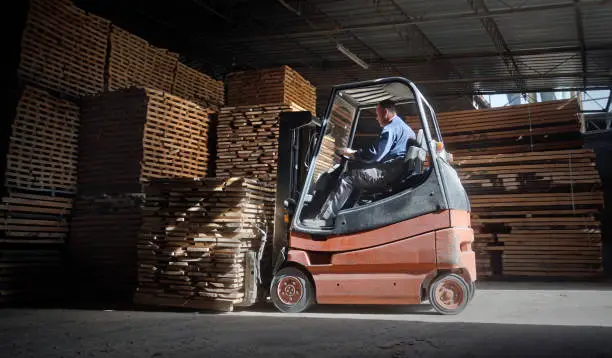Pallets are the backbone of logistics and supply chain management, silently carrying the weight of industries worldwide. Whether in bustling cities like Sydney or quieter regions like Tasmania, pallets keep goods moving efficiently. Yet, the world of pallets is more intricate than it first appears. From ensuring a steady supply to reducing losses and improving tracking systems, businesses need a firm grasp on pallet control. In this article, we will dive into the importance of pallet plastic, pallet tracking, and effective pallet control across various regions in Australia, including New South Wales (NSW), Tasmania, Perth, and Brisbane.
The Rise of Pallet Plastic: A Game Changer
Traditionally, pallets have been made from wood. But over the last few decades, pallet plastic has become a popular alternative, and for good reason. Plastic pallets are not only more durable but also provide a cleaner, lighter, and more consistent solution for businesses.
From my personal experience managing logistics in a local retail business, we made the switch to plastic pallets a few years ago, and it’s been a game-changer. Plastic pallets don’t splinter, are weather-resistant, and can be easily sanitized, making them perfect for industries like pharmaceuticals and food where hygiene is critical.
Key benefits of pallet plastic include:
Longevity: They have a much longer lifespan compared to wooden pallets, which can break or deteriorate over time.
Reduced weight: Easier handling for workers and reduced shipping costs.
Environmental benefits: Often made from recycled materials and can be recycled again at the end of their life.
For companies operating in extreme weather conditions, like those in Brisbane’s tropical climate or Tasmania’s unpredictable winters, plastic pallets provide an extra layer of reliability and ease of use.
The Importance of Pallet Tracking
Keeping track of pallets may not sound like the most exciting part of logistics, but it’s one of the most crucial aspects. Imagine trying to run a warehouse or a busy shipping operation without knowing where your pallets are—it would be a nightmare! Pallet tracking helps companies stay organized and avoid unnecessary losses.
One of the challenges I faced when managing a logistics project was the frequent misplacement of pallets. We would often waste hours searching for misplaced pallets, leading to delays and unnecessary costs. Introducing a pallet tracking system was like a breath of fresh air—it completely changed how we operated.
With pallet tracking, companies can:
Monitor the location of each pallet: Whether in a warehouse or during transit.
Track the movement history: Understanding the journey each pallet takes can help improve efficiency.
Identify loss or theft: Reducing the number of ‘missing’ pallets can save significant money.
Optimize usage: Knowing which pallets are in use and which are sitting idle allows for better resource management.
Modern pallet tracking technologies use RFID chips, barcodes, or GPS, ensuring real-time updates on the status and location of pallets. In regions like NSW and Perth, where industries operate at a large scale, pallet tracking is no longer optional but a necessity.
Pallet Control in New South Wales (NSW)
When it comes to pallet control in NSW, the state’s vast economy demands precise and efficient pallet management. Whether it’s manufacturing, retail, or agriculture, NSW businesses rely heavily on robust pallet systems to ensure their goods move smoothly across the region.
My cousin, who works for a mid-sized logistics firm in Sydney, often shares stories about the challenges they face when managing thousands of pallets for their clients. Without proper pallet control, they could easily lose track of inventory, incur high costs, or delay shipments. Their secret? They’ve implemented a sophisticated pallet tracking system that integrates with their inventory management software, making pallet control a seamless process.
In NSW, pallet control helps companies:
Reduce losses from misplaced or damaged pallets.
Improve turnaround time for orders.
Streamline operations by ensuring pallets are always in the right place at the right time.
Pallet Control in Tasmania
Tasmania, with its more rural setting and smaller population, faces unique challenges when it comes to logistics. However, just because it’s a smaller state doesn’t mean pallet control in Tasmania is any less important. In fact, due to the state’s geographic isolation, efficient pallet management is critical.
From the booming salmon farming industry to the fresh produce sector, businesses in Tasmania rely on reliable pallet control to get their products to mainland Australia and beyond. In my own travels to Tasmania, I’ve seen how essential pallets are to the island’s agricultural sector, ensuring products like apples, berries, and dairy reach supermarkets across the country.
Effective pallet control in Tasmania helps businesses:
Minimize transportation costs by optimizing pallet loads.
Ensure product safety, especially for fragile or perishable goods.
Track pallets across regions for better logistics planning.
Pallet Control in Perth
Over on the west coast, pallet control in Perth takes on a different flavor. As one of Australia’s most isolated major cities, Perth faces the dual challenge of long-distance shipping and regional supply chain management.
Several years ago, I worked on a project in Perth that involved transporting mining equipment to remote sites. Having an efficient pallet control system was essential. Without it, we would have faced significant delays, not to mention the added cost of replacing lost or damaged pallets.
For businesses in Perth, the benefits of pallet control include:
Efficient management of large-scale operations, especially in industries like mining and agriculture.
Reduced downtime by ensuring pallets are readily available for loading and shipping.
Cost savings by avoiding the need for constant pallet replacements.
Pallet Control in Brisbane
Lastly, let’s turn to Brisbane, a city known for its dynamic economy and growing infrastructure. As Brisbane’s industries expand, so does the need for better pallet management.
When I visited a friend’s warehouse in Brisbane, I was surprised by the size and scale of their operation. They dealt with everything from consumer goods to heavy machinery, all of which relied heavily on pallet systems. Implementing an advanced pallet control system allowed them to manage their stock more efficiently, improve tracking, and reduce losses due to damaged pallets.
For Brisbane’s businesses, pallet control ensures:
Improved scalability, allowing them to handle both small and large shipments.
Enhanced stock control, reducing errors in shipping and receiving.
More reliable shipping times, which is crucial for customer satisfaction.
Conclusion
Pallets might seem like simple tools, but they play a crucial role in keeping the wheels of commerce turning. From the flexibility and durability of pallet plastic to the necessity of precise pallet tracking systems, businesses in NSW, Tasmania, Perth, and Brisbane need to invest in effective pallet control.
In the fast-paced world of logistics, staying on top of your pallet game can mean the difference between smooth operations and costly disruptions. So, whether you’re in a warehouse in Sydney or shipping goods from Tasmania, take a moment to appreciate the humble pallet—your business depends on it!



